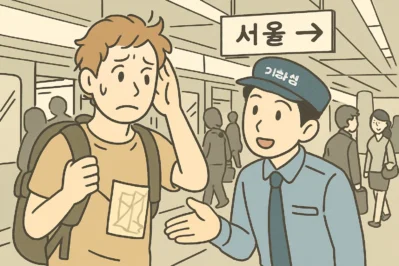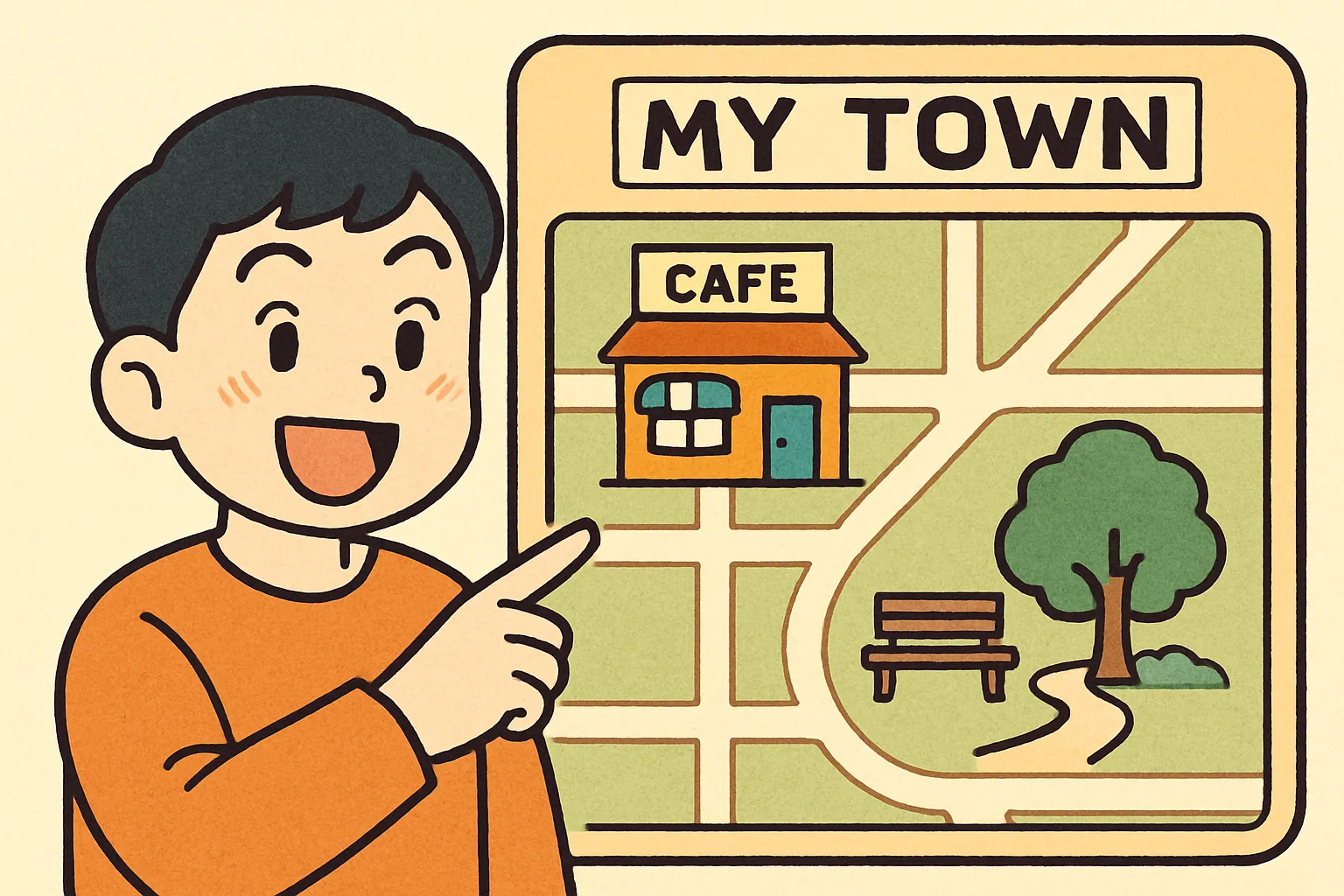Lost in Seoul? Master “Where Did You Lose It?” in Korean!
Hello! Welcome to [Maeil Hangeul], here to upgrade your Korean skills!
Ever had that mini heart attack when you can’t find your wallet or phone? It’s even more stressful when you’re in a foreign country! Today, we’re going to learn a super important phrase that will help you in this exact situation. Imagine you’re at a lost and found center in a busy Seoul subway station. A kind staff member will likely ask you one key question. Let’s learn how to understand it and answer like a pro! This is a must-know skill for anyone traveling or living in Korea.
Core Expressions You Need to Know
Here are the essential building blocks for today’s lesson.
- 어디서 (eodiseo)
- Pronunciation [Romanized]: eo-di-seo
- English Meaning: Where? / At what place?
- Detailed Explanation: This is one of the most important question words! It’s a combination of 어디 (eodi), which means “where,” and the location particle -에서 (-eseo), which means “at” or “in.” You use it to ask where an action took place.
- 잃어버리셨어요? (ireobeorisyeosseoyo?)
- Pronunciation [Romanized]: i-reo-beo-ri-syeos-seo-yo?
- English Meaning: Did you lose (it)?
- Detailed Explanation: This is the polite and formal way a staff member would ask if you lost something. It comes from the verb 잃어버리다 (ireobeorida), meaning “to lose.” The -시- (-si-) in the middle makes it respectful. It’s a key phrase to recognize!
- [장소]에서 잃어버렸어요. ([jangso]-eseo ireobeoryeosseoyo.)
- Pronunciation [Romanized]: [jang-so]-e-seo i-reo-beo-ryeos-seo-yo.
- English Meaning: I lost it at/in [Place].
- Detailed Explanation: This is your go-to answer! You simply put the name of the place where you lost your item before -에서 잃어버렸어요. For example, “카페에서 잃어버렸어요” (kape-eseo ireobeoryeosseoyo) means “I lost it at the cafe.”
Example Conversation
Let’s see how these expressions work in a real-life situation at a Lost & Found office.
- 직원 (Staff / A): 무엇을 잃어버리셨어요? (Mueoseul ireobeorisyeosseoyo?)
- What did you lose?
- 학습자 (Learner / B): 핸드폰을 잃어버렸어요. (Haendeuponeul ireobeoryeosseoyo.)
- I lost my cell phone.
- 직원 (Staff / A): 어디서 잃어버리셨어요? (Eodiseo ireobeorisyeosseoyo?)
- Where did you lose it?
- 학습자 (Learner / B): 지하철에서 잃어버렸어요. (Jihacheol-eseo ireobeoryeosseoyo.)
- I lost it on the subway.
See? Simple and effective!
Culture Tip & Trend Deep Dive
Here’s a great piece of news: Korea is famous for being incredibly safe, and people are very honest. There’s a very high chance you’ll get your lost item back!
- The Power of Lost & Found: Major public places like subway stations and airports have highly efficient Lost & Found centers (유실물 센터 – yusilmul senteo). The Seoul Metro Lost & Found system is particularly famous for its effectiveness.
- Sound Like a Local: When you say you lost something on the subway (지하철에서), you can sound even more like a native speaker by adding the line number! For example, “2호선에서 잃어버렸어요” (i-ho-seon-eseo ireobeoryeosseoyo) means “I lost it on Line 2.” This little detail is super helpful for the staff and will definitely impress them!
Wrap-up & Practice Time!
Great job today! We learned how to understand the crucial question “어디서 잃어버리셨어요?” (Where did you lose it?) and how to answer with “[Place]-에서 잃어버렸어요.” (I lost it at [Place]).
Now, it’s your turn to practice!
Quiz: You lost your bag (가방 – gabang) at the airport (공항 – gonghang). How would you answer the staff’s question, “어디서 잃어버리셨어요?”
Fill in the blank:
“___________에서 잃어버렸어요.”
Leave your answer in the comments below using the expressions we learned today! Keep practicing, and you’ll be ready for any situation in Korea






